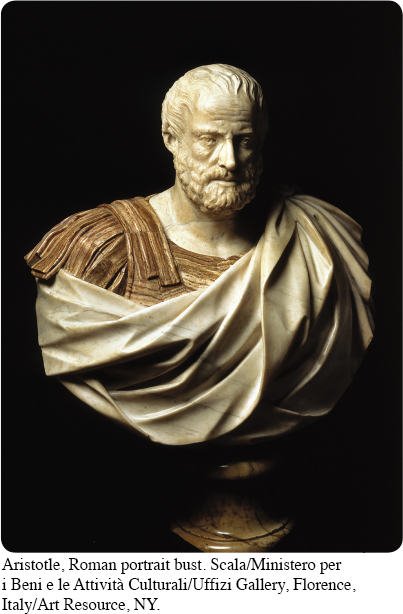Logos, Pathos, and Ethos

To be effective, your argument has to be persuasive. Persuasion is a general term that refers to how a speaker or writer influences an audience to adopt a particular belief or to follow a specific course of action.
In the fifth century BCE, the philosopher Aristotle considered the issue of persuasion. Ancient Greece was primarily an oral culture (as opposed to a written or print culture), so persuasive techniques were most often used in speeches. Public officials had to speak before a citizens’ assembly, and people had to make their cases in front of various judicial bodies. The more persuasive the presentation, the better the speaker’s chance of success. In The Art of Rhetoric, Aristotle examines the three different means of persuasion that a speaker can use to persuade listeners (or writers):
The appeal to reason (logos)
The appeal to the emotions (pathos)
The appeal to authority (ethos)
The Appeal to Reason (Logos)
According to Aristotle, argument is the appeal to reason or logic (logos). He assumed that, at their core, human beings are logical and therefore would respond to a well-
Page 15
Logos in Action
Notice how the ad below for the Toyota Prius, a popular hybrid automobile, appeals primarily to reason. It uses facts as well as a logical explanation of how the car works to appeal to reason (as well as to the consumer’s desire to help the environment).

Page 16
You can assess the effectiveness of logos (the appeal to reason) in an argument by asking the following questions:
Does the argument have a clear thesis? In other words, can you identify the main point the writer is trying to make?
Does the argument include the facts, examples, and expert opinion needed to support the thesis?
Is the argument well organized? Are the points the argument makes presented in logical order?
Can you detect any errors in logic (fallacies) that undermine the argument’s reasoning?
The Appeal to the Emotions (Pathos)
Aristotle knew that an appeal to the emotions (pathos) could be very persuasive because it adds a human dimension to an argument. By appealing to an audience’s sympathies and by helping them to identify with the subject being discussed, emotional appeals can turn abstract concepts into concrete examples that can compel people to take action. After December 7, 1941, for example, explicit photographs of the Japanese attack on Pearl Harbor helped convince Americans that retaliation was both justified and desirable. Many Americans responded the same way when they saw pictures of planes crashing into the twin towers of the World Trade Center on September 11, 2001.
Although an appeal to the emotions can add to an already strong argument, it does not in itself constitute proof. Moreover, certain kinds of emotional appeals—
Pathos in Action
The following ad makes good use of the appeal to the emotions. Using a picture of polar bears defaced by graffiti, the ad includes a caption encouraging people to respect the environment. Although the ad contains no supporting evidence, it is effective nonetheless.
Page 17

You can assess the effectiveness of pathos (the appeal to the emotions) in an argument by asking the following questions:
Does the argument include words or images designed to move readers?
Does the argument use emotionally loaded language?
Does the argument include vivid descriptions or striking examples calculated to appeal to readers’ emotions?
Are the values and beliefs of the writer apparent in the argument?
Does the tone seem emotional?
The Appeal to Authority (Ethos)
Finally, Aristotle knew that the character and authority of a speaker or writer (ethos) could contribute to the persuasiveness of an argument. If the person making the argument is known to be honorable, truthful, knowledgeable, and trustworthy, audiences will likely accept what he or she is saying. If, on the other hand, the person is known to be deceitful, ignorant, dishonest, uninformed, or dishonorable, audiences will probably dismiss his or her argument—
Page 18
Ethos in Action
The following ad uses an appeal to authority. It uses an endorsement by the popular tennis star Venus Williams to convince consumers to buy Reebok sneakers. (Recent studies suggest that consumers react positively to ads that feature products endorsed by famous athletes.)
You can assess the effectiveness of ethos (the appeal to authority) in an argument by asking the following questions:
Does the person making the argument demonstrate knowledge of the subject?
What steps does the person making the argument take to present its position as reasonable?
Does the argument seem fair?
If the argument includes sources, do they seem both reliable and credible? Does the argument include proper documentation?
Does the person making the argument demonstrate respect for opposing viewpoints?
